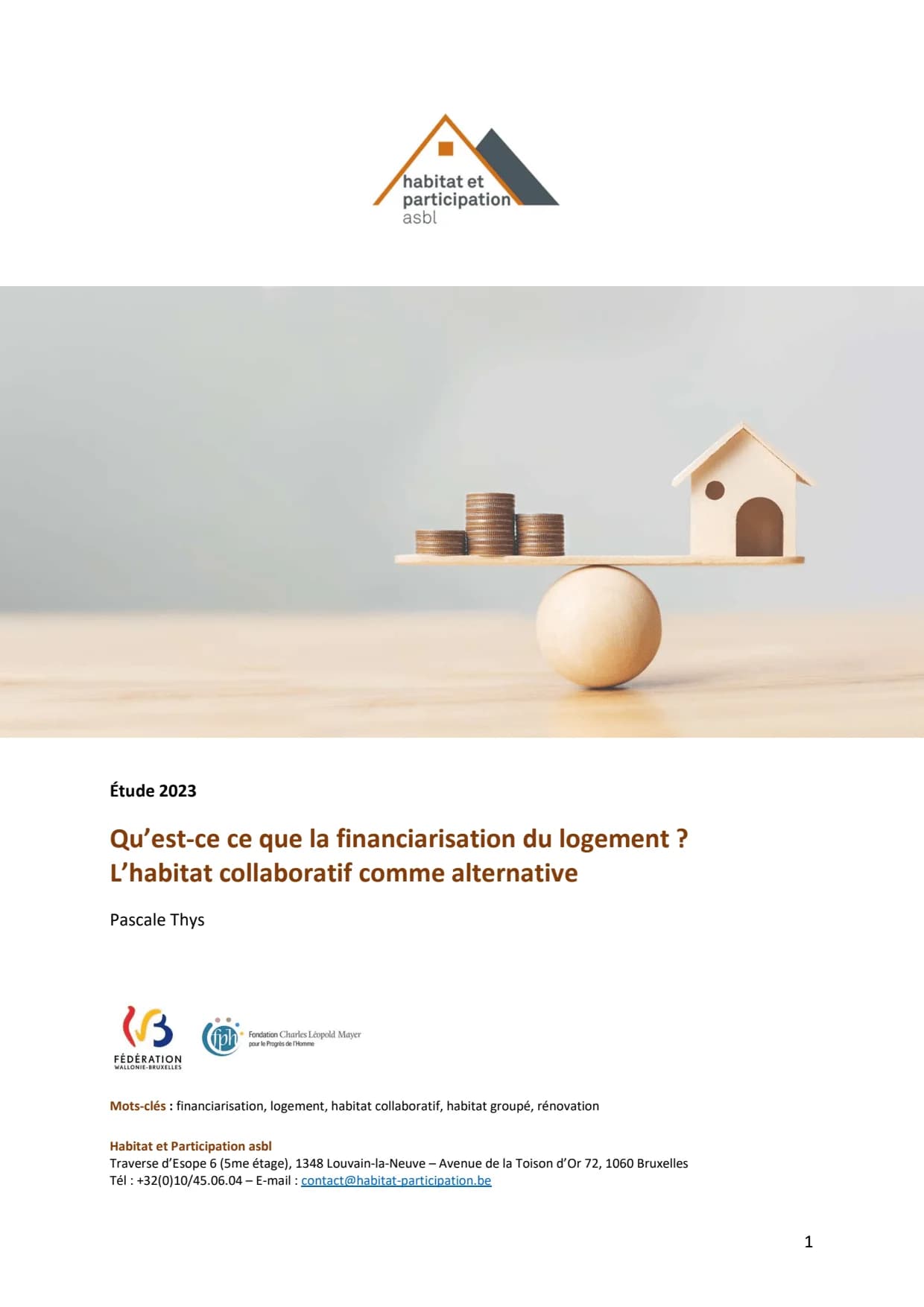AI-Generated Summary
Context and Purpose
The document titled "What is the financialisation of housing?" was published by Habitat et Participation, an association established in 1982 that focuses on collaborative housing and citizen participation in housing matters. The authors aim to provide a comprehensive understanding of the financialisation of housing, its impacts, and offer alternative solutions like collaborative housing.
Understanding Financialisation
The document outlines the concept of financialisation in housing, emphasizing its roots in property rights, mortgage borrowing, and speculation. Financialisation manifests in two stages: 1.0 involves speculation, while 2.0 refers to securitisation, where housing transforms into financial assets. The authors argue that financialisation has resulted in increased housing prices and marginalised vulnerable populations.
Concrete Examples of Financialisation
The document highlights the situation in Brussels as a case study, illustrating how financialisation impacts local housing markets. It notes that only 7% of housing in Brussels is public, despite a high demand for social housing. The text also discusses the gentrification phenomenon, wherein rising property values displace lower-income residents, exacerbating inequality.
Collaborative Housing as an Alternative
The authors advocate for collaborative housing as a potential solution to combat the negative effects of financialisation. They describe various models of collaborative housing that prioritize community engagement over profit. These models include cooperatives and community land trusts, which aim to limit speculation and provide sustainable housing options.
Action Plan and Advocacy
The document outlines an action plan for 2023-2024, focusing on raising awareness and advocating for legal reforms that support collaborative housing models. The authors emphasize the need for a governance structure that prioritizes social utility over profit in housing initiatives. They argue that collaborative housing can resist financialisation when supported by a committed community and appropriate policy frameworks.
Conclusion
In summary, the document provides a critical analysis of financialisation in housing, its implications for social equity, and presents collaborative housing as a viable alternative. By examining examples from Brussels and proposing actionable strategies, the authors contribute to the ongoing dialogue about sustainable housing solutions in Europe.

